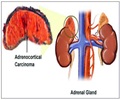A new study conducted on an animal model has investigated potential links between testosterone supplements and cardiovascular and renal disease.
A new study conducted on an animal model has investigated potential links between testosterone supplements and cardiovascular and renal disease.
A team of researchers used an animal model to investigate potential links between testosterone supplements and cardiovascular and renal disease.Three groups of rats were used: intact, gonadectomized (at eight months of age), and testosterone-supplemented rats. Testosterone supplements were administered chronically via pellets and rats were monitored until 13 months of age. Blood pressure was measured at the end of the experiment via indwelling arterial catheters inserted into conscious, freely moving rats. Urine was collected for two hours and urinary protein excretion was determined.
The researchers found that blood pressure was significantly higher in testosterone-supplemented male SHR (spontaneously hypertensive rats) as compared with intact rats, whereas castration did not alter blood pressure levels. Testosterone supplemented SHR excreted more urinary protein than intact rats, and castration reduced proteinuria (urinary protein).
The results suggest that testosterone supplementation of aging male SHR promotes renal injury and thereby exacerbates hypertension. The results also show that removal of endogenous androgens later in life (eight months) prevents the development of hypertensive renal injury without altering existing hypertension levels.
The study is part of the researchers' ongoing project to investigate the effects of testosterone-supplementation in animal models of disease that mimic the characteristics of the human male population that currently receive testosterone supplements. They are currently testing the hypotheses that the natural decrease in testosterone brought on by aging may affect the progression of pre-existing cardiovascular/renal disease.
Source-ANI
SRM/J











